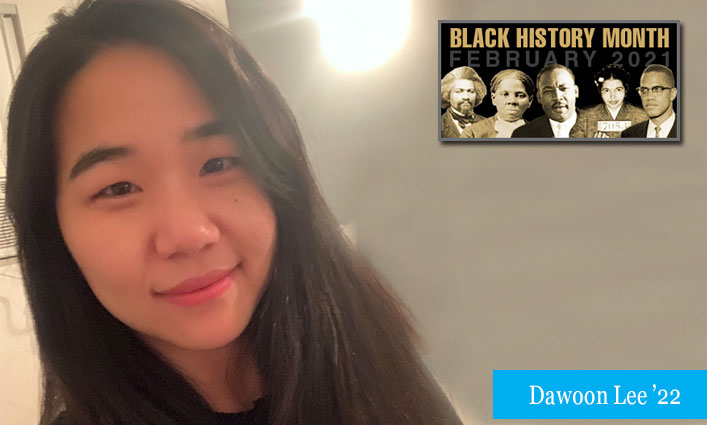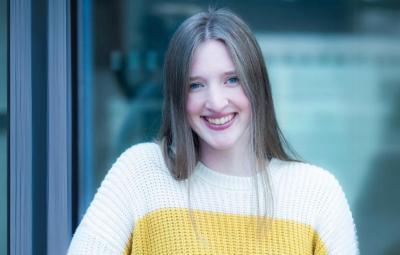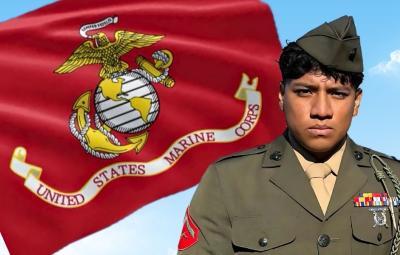
John Jay’s celebration of Black History Month traditionally culminates with our annual Malcolm/King Awards Breakfast, which pays homage to the two Civil Rights giants, Malcolm X and Dr. Martin Luther King, Jr., while also recognizing the incredible talents of our student award winners and present racial justice visionaries. While this year’s celebration may be a little different, the vigor in how we honor their legacy remains the same. In anticipation of this year’s virtual Malcolm/King Awards Breakfast on February 26, 2021, we spoke with the student award winners to understand what Black History Month means to them and to learn how they hope to advance the goals of justice and equality for all.
Dawoon Lee ’22, a Forensic Psychology major from South Korea, hopes to work with system-impacted young people by helping them reconnect with their communities, get access to effective rehabilitative programs, and pursue their education as they reenter society.
February is Black History Month. What does it mean to you to celebrate the many achievements generations of African-Americans have accomplished?
It’s important to celebrate the many accomplishments generations of African-Americans have realized, because their stories represent how hard people have fought to establish equality and justice in America. African-Americans have been treated harshly in this country, its seen throughout history and in how they’re treated within all of the country’s systems. But, they never give up, they continue the fight for human rights and they do it not just for African-Americans, but for all people.
“I believe that education is one of the most effective ways to present the problems of discrimination and discuss how we can eliminate systematic problems.” —Dawoon Lee
What goals do you have for advancing equality and fairness for all people—especially African-Americans?
I hope to help increase equality and fairness to minority communities through equal access to education. I believe that education is one of the most effective ways to present the problems of discrimination and discuss how we can eliminate systematic problems. Students should see what the reality is and learn how discrimination works and what it looks like under so many of our systems. Black and brown communities don’t have access to the resources rich, white communities may have. Those resources include things like access to good schools, mentorship programs, health facilities, and job opportunities. Having access to those things gives communities the ability to move up in the world and gives kids the chance to discover what they want to do in life.
When you think of African-American history, what makes you the proudest?
When I started to learn the history of African-Americans, it struck me how they were treated so unfairly and cruelly in history, and yet they never stopped fighting for justice and equality. I am impressed and inspired by their resiliency. Many people were forced to give up their dreams because of the color of their skin, and that’s just wrong. I am so proud of how African-Americans have fought and worked to create change in our society.
“I am so proud of how African-Americans have fought and worked to create change in our society.” —Dawoon Lee
If you could talk to Malcolm X or Dr. Martin Luther King, Jr., what would you ask them? What would you want to say to them?
I would tell them both how much I appreciate all the efforts they made toward fighting for equality. I would ask them what they think of the current Black Lives Matter movement and do they see it as an improved version of their movement.
Dr. King once famously said, “Let us realize the arc of the moral universe is long, but it bends toward justice.” As a student at a school focused on justice, what does that quote mean to you?
To me, it means that all the work done to improve equality will take time, but ultimately equality will be achieved. There might be people who try to deceive others to get what they want and to prevent equality along the way, but justice will win over them.
“The first step we can take to move forward as a society and a country is to accept the reality, acknowledge the history and the facts.” —Dawoon Lee
The last 12 months have been challenging, with a global pandemic that has disproportionately affected our Black and brown communities, and a national reckoning on systemic racism. What steps can we take to move forward as a society and a country to make equality for all achievable?
It was hard to see the statistics showing that Black and brown communities were the ones mostly suffering during the pandemic. The first step we can take to move forward as a society and a country is to accept the reality, acknowledge the history and the facts. We can see segregation still remains, especially in many of our government systems and law enforcement. The public should know that some people do not have protection or access to resources. Some people do not have the option to work safely from home and avoid the dangers of the pandemic as others do. I believe that the disadvantaged groups must demand fair treatment peacefully and persistently.
What does being named a winner of the Malcolm/King Scholarship mean to you?
When I wrote my essay, I mentioned how I sincerely wanted to see an equal society, one where you won't be judged because of your race or ethnicity. Sometimes, I worry that I am too naive to think that it’s possible, but I truly hope we can get there. Being named a winner of the Malcolm/King Scholarship meant to me that I am on the right track in life and that my work will help achieve justice for all.
“I would like to create a program or system that helps at-risk youth get their education and provides them the tools and opportunities to successfully reenter society.” —Dawoon Lee
If everything goes according to plan, where do you see yourself in 10 years?
In 10 years, I see myself being a social worker. I am interested in juvenile justice and rehabilitation. After receiving my degree and having experiences in the field, I hope to contribute my time to working for an effective juvenile rehabilitation system. Ultimately, I would like to create a program or system that helps at-risk youth get their education and provides them the tools and opportunities to successfully reenter society rather than relapse into crime. I would like to help juveniles reconnect to their families and communities. You help heal the relationship with families and communities by understanding the root causes of the juvenile’s behaviors, and then cultivating plans and actions to prepare them for a successful future.



